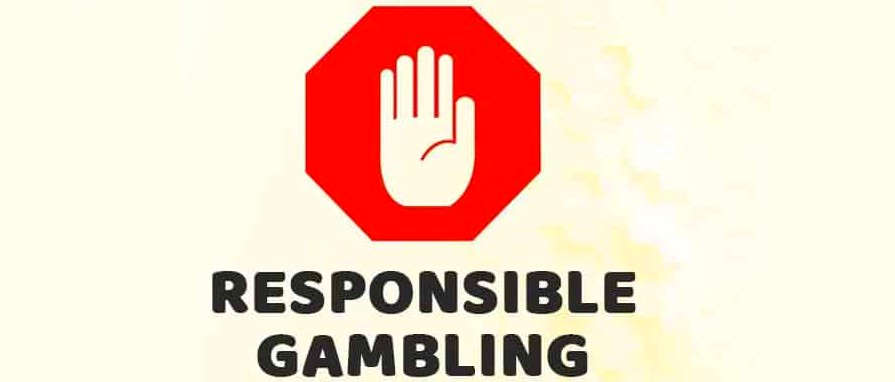Age for Gambling
Gambling is widespread, and many people play these activities recreationally and responsibly. However, gambling can become addictive and lead to problem gaming if it is not taken seriously. The minimum age for legal gambling varies by country or region; most countries have set the legal age requirement for gambling at 18 years old or older.

How to Prevent Underage Gambling?
 Underage gambling has become a big problem in many countries with easy access to the Internet. It is essential to be aware of responsible gambling practices and create policies that can help prevent underage gambling and risk factors associated with problem gamblers. Let’s look at some tips for preventing underage gambling and identifying potential problem gamblers.
Underage gambling has become a big problem in many countries with easy access to the Internet. It is essential to be aware of responsible gambling practices and create policies that can help prevent underage gambling and risk factors associated with problem gamblers. Let’s look at some tips for preventing underage gambling and identifying potential problem gamblers.
- Develop a Responsible Gambling Policy – A responsible gambling policy is essential to prevent underage gambling. This policy should include age restrictions, verification procedures, and limitations on deposits or wagers from specific individuals or groups deemed too young by your organization’s standards.
- Educate Employees About Problem Gambling – Ensure employees understand the signs of problem gambling to recognize when someone may be at risk of developing an addiction. Staff training on communicating with clients who exhibit indicators of problem gambling will be able to manage these situations more effectively, rather than turning consumers away without giving the resources or support they may require.
- Monitor Customer Behavior– Businesses should actively monitor customer behavior for any indications that someone may be exhibiting signs of problem gaming, such as placing larger bets than usual or spending money beyond their means. If this behavior is identified, the business should follow up with the customer by referring them to external organizations specializing in helping people struggling with addiction issues like GamCare or Gamblers Anonymous International Service Office (GAISO).
- Offer Self-Exclusion Policies– Businesses should offer self-exclusion policies where players can voluntarily opt-out if they feel like their behavior is becoming concerning and unsustainable over time without being judged by others for their decision-making process regarding playing responsibly. Providing players with these opportunities gives individuals agency over their choices while keeping businesses accountable for managing their customers’ gaming habits effectively.
These tips and policies can help prevent underage gambling and promote responsible gambling.
Net Nanny
Net Nanny is a parental control software that enables parents to monitor their child’s devices and online activity. It can block websites related to casinos and sports betting, restrict access by gambling age groups, and other filters such as language, personal contact information sharing, or chat/instant messaging features.
Cyber Patrol
Cyber Patrol software which allows them to set up extensive web browsing restrictions explicitly tailored for their children’s devices. The program can block sites based on age-appropriate categories, such as those related to gambling sites, and filter out inappropriate content, such as sexually explicit material and highly violent imagery.
Cyber Sitter
Cyber Sitter software actively monitors a child’s activity whenever they visit websites or run specified programs. By configuring settings within this program accordingly, safeguards can be set up to prevent children from visiting specific types of sites while recording any attempted visits so that appropriate actions may be taken later.
Gamblock
For added protection against potential problem gaming activities often conducted over the Internet – like visiting real-money-based gaming platforms – parents can utilize GamBlock.
Gambling Addiction Support in the US
 Gambling addiction support in the US heavily focuses on Responsible Gambling. It entails a large team of specialists and resources committed to educating the public on responsible gambling.
Gambling addiction support in the US heavily focuses on Responsible Gambling. It entails a large team of specialists and resources committed to educating the public on responsible gambling.
It also includes developing responsible gambling policies and tips for gamblers to enjoy their gaming experience while minimizing any potential harm associated with problem gaming.
National Council on Problem Gambling
The National Council on Problem Gambling is a non-profit United States organization dedicated to helping individuals and their families affected by problem gambling. Established in 1972, this organization raises awareness of the issues associated with gambling addiction and strives to help people through prevention, education, and treatment.
1-800-GAMBLER
1-800-GAMBLER provides support resources for those struggling with problem gaming issues across all 50 states in the US. The helpline’s counselors can offer one-on-one assistance over the phone or via live chat to provide advice on preventing problem gaming and tips on coping with any existing addiction issues someone might have.
Gambling Addiction Support in the UK
 Gambling addiction can be a severe problem that can lead to financial, emotional, and personal difficulties if left untreated. Fortunately, there are support systems in the UK to help those suffering from compulsive gambling and other issues related to problem gaming. Here are four of the central support systems for professional gambling addiction support in the UK.
Gambling addiction can be a severe problem that can lead to financial, emotional, and personal difficulties if left untreated. Fortunately, there are support systems in the UK to help those suffering from compulsive gambling and other issues related to problem gaming. Here are four of the central support systems for professional gambling addiction support in the UK.
Gamblers Anonymous UK
Gamblers Anonymous UK is an organization that provides help and support to people who are struggling with problem gaming. It is based on the 12-step recovery model, allowing members to meet regularly to share experiences and offers mutual support in recovering from gambling addiction.
Gamcare
Gamcare is a charity providing free advice, information, and emotional support for anyone affected by problem gaming in the UK. They also offer practical guidance on preventing problem gambling before it starts and information about resources available if someone has already developed a problem with betting or gaming.
BeGambleAware
BeGambleAware is another charity dedicated to reducing the harm caused due to excessive or addictive gambling behavior across the UK. They have established a comprehensive set of guidelines around appropriate behavior when engaging in betting activity and signposts for those already having trouble due to compulsive play.
Gordon Moody
Gordon Moody Association provides residential treatment programs designed specifically for people experiencing severe problems caused by compulsive gambling behaviors. Their approach combines group therapy and one-on-one counseling so clients understand what causes them to gamble while having strategies available should they experience it again once they leave the program.
Gambling Addiction Support in Canada
 Gambling Addiction Support in Canada is an initiative that emphasizes responsible gambling practices and offers resources for those facing gambling problems.
Gambling Addiction Support in Canada is an initiative that emphasizes responsible gambling practices and offers resources for those facing gambling problems.
Responsible Gambling Council
The Responsible Gambling Council offers resources and advice on promoting responsible gambling in Canada. They have developed a responsible gambling policy that provides players with tips on playing safely and responsibly and detecting problem gambling behaviors.
Gamtalk
Gamtalk is an online forum supporting individuals with problem gambling. It is a platform where people can share stories, ask questions, receive encouragement from others with similar experiences, and even access professional help when necessary.
Connex Ontario
Connex Ontario is the provincial helpline for those struggling with addiction. They offer confidential phone counseling, assessment tools, information about community services, and treatment options across the province for those experiencing problems with gambling.
Play Responsibly
Responsible gambling is playing without exceeding your limits, setting a budget, sticking to it, and always remembering that gambling should be fun. All licensed casinos have a Responsible Gambling policy outlining strategies for preventing problem online gambling, including self-testing tools, customer support systems, and other measures to help people gamble responsibly.
If you think that you may have a gambling addiction, some organizations provide resources and advice on how to prevent problem gambling, understand the risks associated with it, and even help those dealing with problems from getting the appropriate treatment. Remember – if the fun stops – stop!
Responsible Gambling FAQ
What is responsible gambling?
Responsible gambling is making informed decisions about participating in gambling activities while managing risk by setting limits and understanding the odds.
What are some tips for responsible online gaming?
Tips for responsible online gaming include setting time limits, only playing with money you can afford to lose, avoiding chasing losses, and taking regular breaks.
How do I know if I have a problem with gambling?
Warning signs of problem gambling include spending more than intended, feeling guilt or remorse after gambling, borrowing money to gamble, and lying about your level of involvement.
Are there resources available to help me manage my behavior?
Yes! Resources such as counseling and support groups can help manage your behaviors related to problem gambling.
What should I do if someone close to me has a problem with gambling?
Offer your support without judgment and encourage them to seek professional help from qualified practitioners specializing in the treatment of compulsive or problem gamblers.


 Responsible gambling is the practice of engaging in gambling activities within one’s limits and with an understanding that there can be risks involved. To protect players from problem gaming, providing them with special tools that encourage safe play is essential.
Responsible gambling is the practice of engaging in gambling activities within one’s limits and with an understanding that there can be risks involved. To protect players from problem gaming, providing them with special tools that encourage safe play is essential.